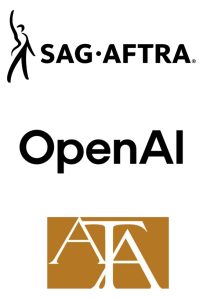 SAG-AFTRA, OpenAI, and actor Bryan Cranston have reached a collaborative agreement to strengthen voice and likeness protections in OpenAI’s generative video model Sora 2, following early reports that Cranston’s likeness was generated without authorization during the model’s invite-only release.
SAG-AFTRA, OpenAI, and actor Bryan Cranston have reached a collaborative agreement to strengthen voice and likeness protections in OpenAI’s generative video model Sora 2, following early reports that Cranston’s likeness was generated without authorization during the model’s invite-only release.
The collaboration also includes the Association of Talent Agents (ATA), United Talent Agency (UTA), and Creative Artists Agency (CAA), all uniting to ensure performers’ rights are safeguarded in the era of synthetic media.
OpenAI confirmed it has reinforced its opt-in protocol, requiring explicit consent for any replication of a performer’s voice or likeness. The company also pledged to respond swiftly to any complaints or misuse, aligning its framework with the principles of the pending NO FAKES Act, federal legislation aimed at preventing unauthorized digital replication.
“I was deeply concerned not just for myself, but for all performers whose work and identity can be misused in this way,” Cranston said. “I am grateful to OpenAI for strengthening its guardrails and respecting our right to manage replication of our voice and likeness.”
SAG-AFTRA President Sean Astin praised the collaboration, calling it “a positive resolution” that underscores the necessity of durable, opt-in protocols. “Consent and compensation must be the foundation of a sustainable and ethical creative ecosystem,” he said.
OpenAI CEO Sam Altman added that the company “will always stand behind the rights of performers” and reiterated its support for the NO FAKES Act, which seeks to establish a national standard protecting against unauthorized digital use of voice and likeness.
